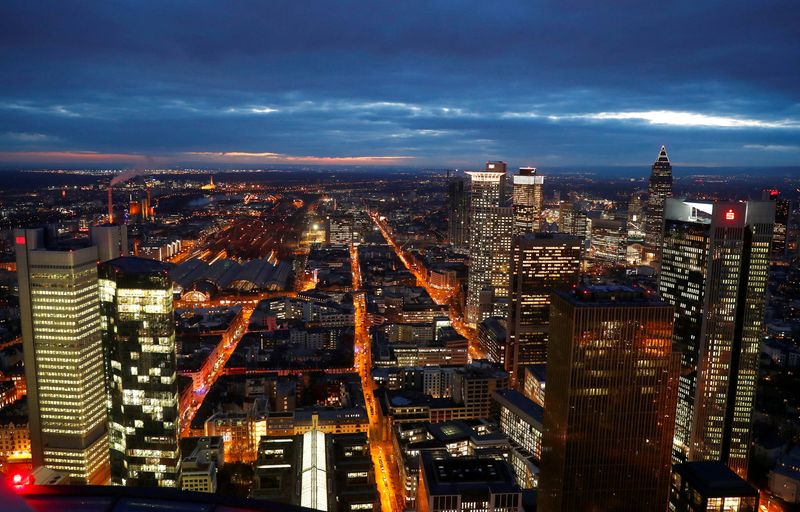By Geoffrey Smith
Investing.com -- Business confidence in Europe's largest economy improved surprisingly in April, rebounding from the initial shock of Russia's invasion of Ukraine which has cast a long shadow over the Eurozone and world economies.
The closely watched Ifo Business Climate Index rose to 91.8 from 90.8 in March, a month after its sharpest drop since the start of the pandemic over two years ago. Both of its sub-indices came in above expectations, with the Current Conditions index edging up to 97.2 from 97.1 instead of an expected decline to 95.8, while the Business Expectations sub-index rose to 86.7 from a downwardly revised 84.9.
The figures suggest that German business has started to adapt to the new realities in the wake of the invasion, which has sent energy prices sharply higher and disrupted numerous supply chains: Volkswagen (ETR:VOWG_p) and other carmakers have been forced to cut output at their factories due to - among other things - interruptions to the supply of wire harnesses from Ukraine.
However, the figures may also reflect the fact that Germany's government has put more effort into resisting sanctions against Russian energy exports than many saw as inevitable a month ago. German Chancellor Olaf Scholz has stubbornly resisted calls from elsewhere in the EU - notably from French President Emmanuel Macron - for the EU to join a boycott on Russian oil already imposed by the U.S. and U.K.
The Munich-based think tank warned, however, that it expects supply chain disruptions to put fresh pressure on German industry in the coming months, due to the spread of COVID-19 lockdowns in China. These finally reached the capital Beijing at the weekend, while mass testing of Shanghai's 25 million residents is also continuing after more than three weeks, despite signs last week that the outbreak of Omicron-variant COVID there was starting to ease.
The news wasn't enough to turn around the German DAX index, which fell 1.4% to a seven-week low on the overnight news out of China.
